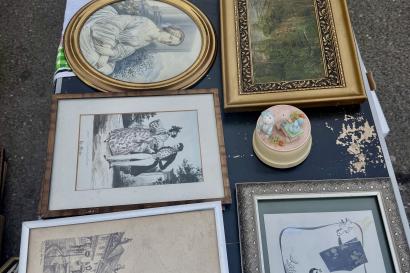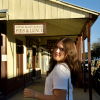One of the biggest differences I’ve noticed between Italy and the United States is the difference in how time is viewed. As I expected, Milan moves at the pace of a metropolis (thrilling for someone who has lived their entire life in the suburbs), with people pushing on and off of public transportation and speeding taxis weaving among the traffic. However, there are certain aspects of life that move at a more leisurely pace; punctuality is not viewed as an integral part of your character. Concerts often begin ten to fifteen minutes behind schedule, and my Italian professor told our class that even in universities there is usually a fifteen minute grace period to arrive at your lecture. Therefore, I’m experiencing both a rapid increase and a marked decrease in my pace of life – it is a strange sensation to be pulled backwards and forwards at the same time.
My concept of “old” has also been redefined. I remember this being a hallmark of my visit to the country eight years ago, and my sense of astonishment at the age of this civilization has not diminished. In America we consider Colonial Williamsburg to be “old” with some of its original constructs dating to 1699, though most have been heavily remodeled. No original buildings remain of Plymouth Plantation, and even the oldest structure in my hometown – a one room cabin built in 1803 – collapsed virtually beyond salvage while various historical groups and property owners discussed the terms of restoration.
Imagine my astonishment when I stood in a Roman theater labeled innocuously as dating back to the first century A.D.
This past weekend I took a day trip to Verona with some other IES students. Among the attractions we saw were the Arena (looks like the Coliseum if you call it that you will be quickly corrected), the Capulet House, the Duomo, and the aforementioned amphitheater. The floor of the Arena has been restored to host summer opera productions, but the rest of the interior looks similar to its original construction around the year A.D. 30. As it was an unusually warm and sunny January afternoon many tourists were stretched out enjoying the weather and taking photos, but a few sat alone in quiet contemplation. The Arena is beautiful, but it is worth remembering that for hundreds of people, its stones were the last thing they saw.
My favorite part of the trip was an evening climb up the hill to the Roman theater. Often bypassed by tourists scrambling to get a picture on Juliet’s balcony or pose with a gladiator, it is still under active excavation and restoration. Above the theater itself is a small maze of staircases that lead to an exquisite sunset view, flanked by columns still bearing original inscriptions in Greek. In this quiet vista, overlooking the darkening city and haunted by the steps of those who came two millennia before, was the Italy that I came to find.

Elizabeth Benz
Elizabeth Benz is a lifetime upstate New York resident who never takes the snow brush out of the back seat of her car. Originally from Buffalo, NY, she is a senior Music Education/Violin Performance major and Italian minor at Ithaca College. These three passions were intertwined on a life-changing trip in 2006 to the International Suzuki Method Conference in Turin, Italy, where she not only saw the communicative power of music across young artists from many nationalities, but also fell in love with the language and culture of the country. Eight years later she is fulfilling the promise she made to herself to return to Italy, after completing her senior student teaching practicum. She is particularly interested in observing the emphasis and importance placed on youth music and arts programs across Europe, and returning with ideas to inspire and support her own program at a future teaching job.








